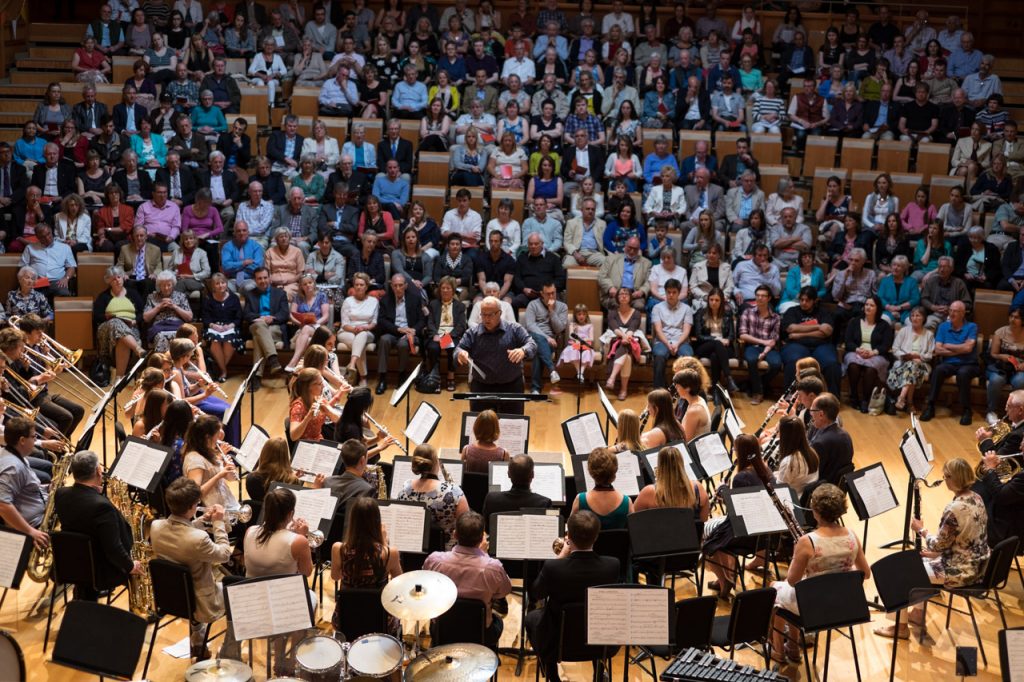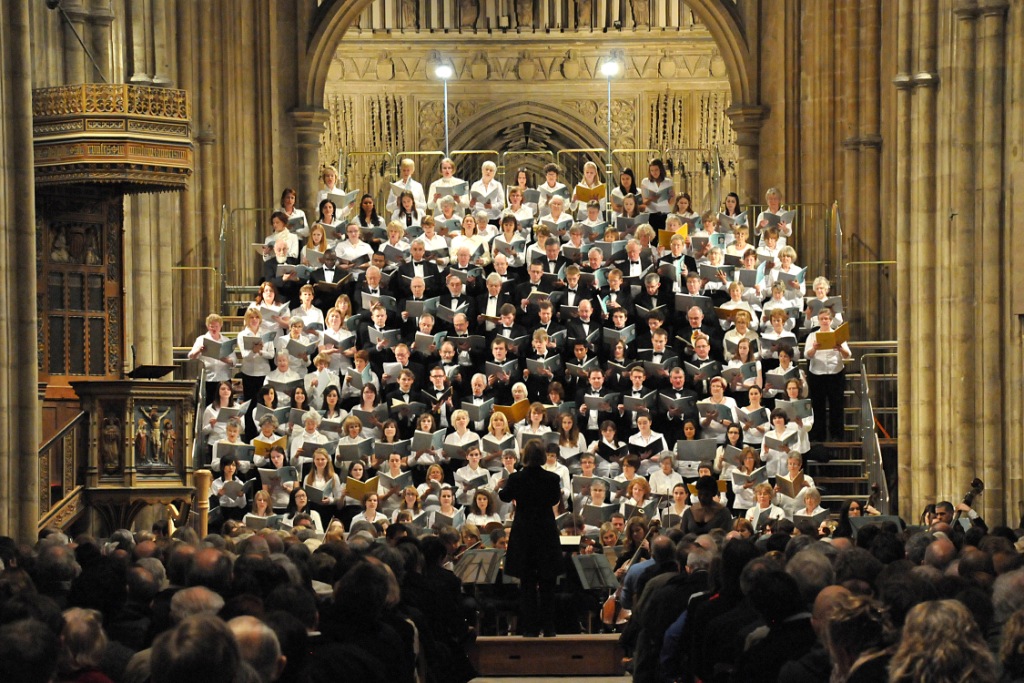As this blog gets underway, it seems useful to begin by reflecting on what it is about collective music-making that is so crucial both to members of the University community, as well as to the human experience in general.
The larger musical activities that occur on campus here – Chorus, Orchestra, Concert Band and Big Band – are events at which people from different aspects of the university’s community can participate on an equal footing: an English professor sits next to a first-year undergraduate reading Maths; a member of the IT department rehearses with a final-year Drama student; or a departmental administrator sings alongside a postgraduate student reading Law. The opportunity to rub shoulders with, and participate alongside, others from the same community is a great leveller, and also widens one’s social circle. The sense of a collective discipline – attending regularly, rehearsing, performing – shared by so many, whatever their occupation or background, and often one that is outside of one’s profession, gives communal music-making its great appeal.

For a short time, whether in rehearsals at the end of the day, or during a performance in Canterbury Cathedral, everyone achieves the same goal as a result of sharing the same rehearsal and performance experience that led up to it. What you do during the day makes no difference: you are in the same boat as all the other performers around you, striving to create a musical event that will move both yourselves and the audience, working as part of a larger team. For those working in an office or at a quiet table in the library the rest of the day, these moments offer a chance to get away from the solitary and join in with a communal activity – often creating a lot of noise!

Apart from solo practice and recitals, music is inherently a social activity: it demands that people work together, share the same experience, support one another: perhaps most importantly, that they make mistakes together in an environment where mistakes are expected and assistance is offered in rectifying them (at least, in early rehearsals!). Few other undertakings offer so supportive an environment in which to work. And events such as WorldFest are a celebration of this, of the collective community coming together to celebrate its unity in working and performing.
I sat in the midst of the Chorus on Sunday’s rehearsal, bolstering the tenors (who this term really don’t need any support – how often can one say that about a tenor section ?!) – and was immersed in the sound-world of Poulenc’s Gloria and Szymanowski’s Stabat Mater; along with everyone else: counting bars’ rests like mad, frantically pitching the note for the next tenor entry from a fleeting clarinet solo or cello line, not being able to see the conductor, singing the wrong text: it was hard work, and terrific fun. I can say that now after a period of twelve or so hours from the tranquillity of the office: it didn’t feel quite like that at the time!
So, take a moment reflect on your own ensemble music-making experiences: what does making music mean to you ?
